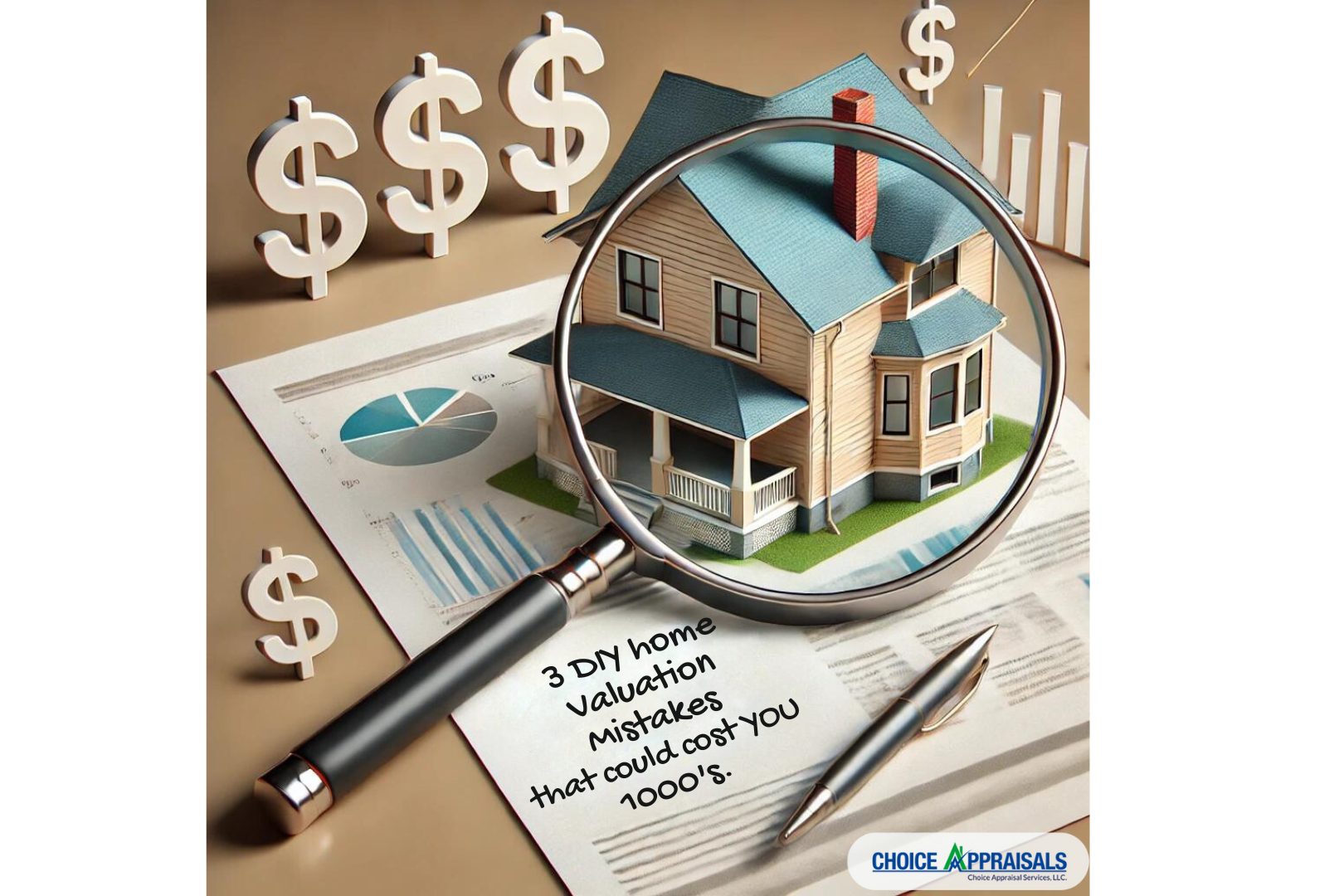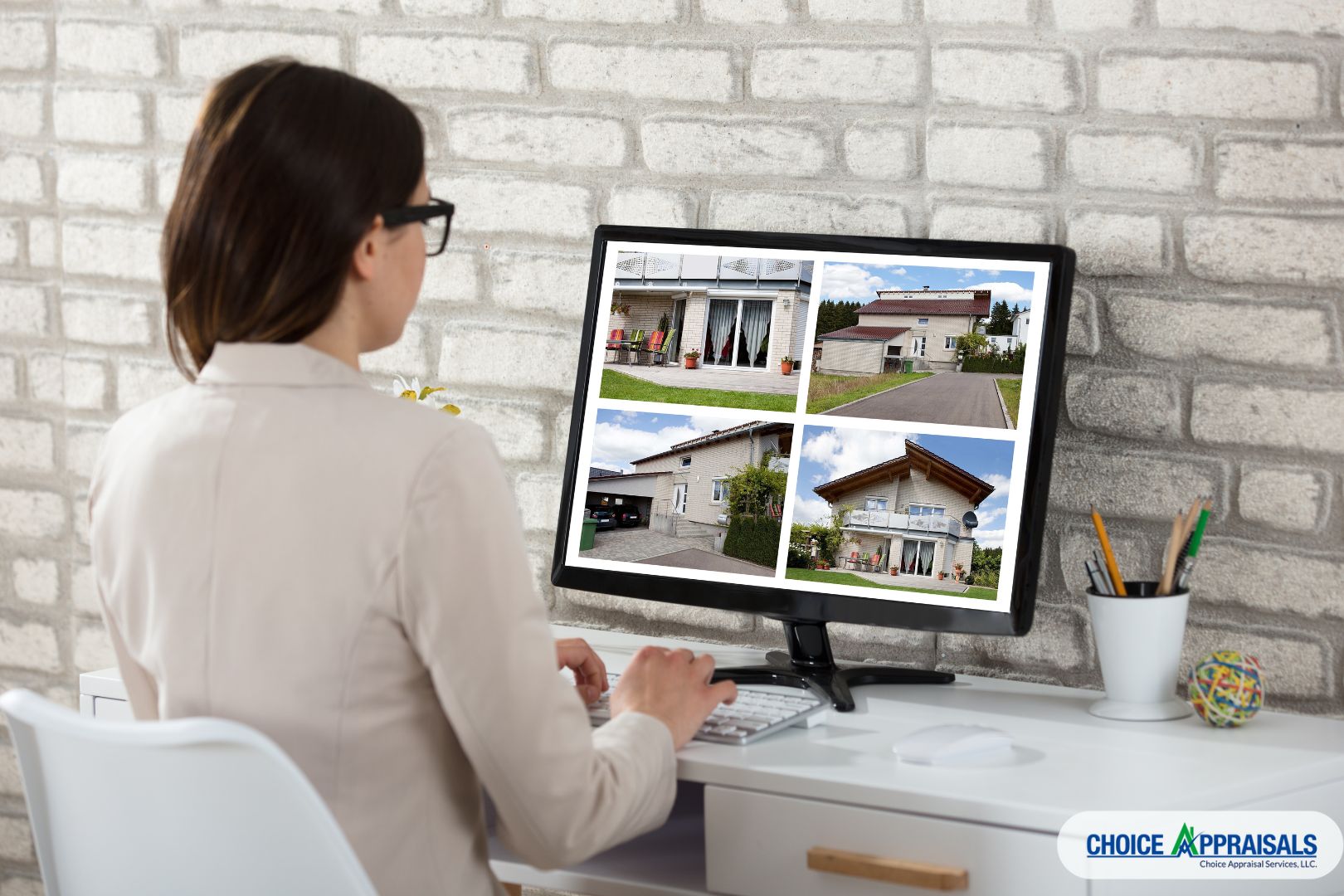3 DIY Home Valuation Mistakes That Could Cost You Thousands
In our fast-paced world, everyone craves value—and we want it instantly. But when it comes to your home’s value, quick fixes aren’t always the best solution.
I’ve previously discussed the pros and cons of online calculators, but today, let’s explore three critical reasons why DIY valuations can be risky:
- Failing to Identify the Underlying Problem
- Lack of Access to Comprehensive Data
- Insufficient Analytical Skills and Tools
These three pitfalls are interconnected—missing the underlying problem leads to misinterpreting the data, which then compounds the errors in your valuation. Let’s delve into each of these in more detail.
1. Missing the Underlying Problem
This might sound surprising, but every house has a “problem” that impacts its value—even brand new ones. By “problem,” I’m referring to a valuation question that must be uncovered to determine the true worth of the property.
For instance, I was once asked to appraise a new construction home in a mature neighborhood where no new homes had been built within a half-mile radius for three years. The key question—or problem—was, “How does the lack of recent new construction sales in the area affect this home’s value?”
Identifying the underlying problem is crucial because it shapes the entire valuation approach. Questions like, “When was the last new construction sale in this area?” or “Are there similar new constructions nearby?” become central.
Without pinpointing the problem, a DIY valuation will likely miss the mark, leading to a flawed estimate.
2. Lack of Access to Comprehensive Data
Where do most people turn for home sale data? Sites like Zillow are common, but they often provide incomplete information.
Realtors have access to gold mines like the Multiple Listing Service (MLS) and Property Valuation Administrator (PVA) websites, which offer more extensive data, especially for unique properties like new constructions.
However, simply accessing data isn’t enough; knowing how to extract and interpret it is key. Early in my career, I made the mistake many DIYers make today—relying on a few neighborhood sales to determine value.
But it’s vital to understand the highs and lows of the market area before drawing conclusions. A DIY valuation might overestimate a property’s value, missing critical market trends that indicate the area can only support 80% of the DIY estimated price.
3. Insufficient Analytical Skills and Tools
Data analysis is where many DIY valuations fall short. Imagine trying to assess a neighborhood with 200 recent sales—how do you determine which ones are relevant? Should some sales be excluded? What are the quarterly price trends?
These questions may significantly influence the final value and answering them requires more than just raw data—it requires the right tools and expertise.
Online resources might offer broad figures, like the median sales price for homes in Louisville, but Louisville has over 100 neighborhoods, each with its own unique market. Without the ability to analyze data specific to your home’s market area, a DIY valuation is bound to be inaccurate.
Wrap-up
In summary, DIY home valuations often fall short because they miss critical steps that professional appraisers never overlook. First, they fail to identify the underlying problem that drives the property’s true value. Without pinpointing this, the entire valuation process is compromised from the start.
Second, they lack access to comprehensive data that realtors and appraisers use to make informed decisions.
Lastly, even when data is available, DIYers often don’t have the tools or expertise needed to analyze it properly, leading to inaccurate and potentially costly errors.
As an appraiser, I approach each property with a well-honed process that starts with identifying the key valuation question, gathering and analyzing data from multiple trusted sources, and using advanced tools to ensure every factor is considered.
My 20+ years of experience, coupled with continuous learning and adaptation, allows me to deliver precise, reliable valuations that help you make informed decisions and maximize your property’s value.
If you’re serious about understanding your property’s true worth and making the most informed decisions possible, skip the DIY route. Let me provide you with a comprehensive appraisal that gives you the confidence to move forward without leaving money on the table.
Ready to get started? Contact me today to schedule a professional appraisal and ensure you’re making the best decisions for your property. Your home is one of your most significant investments—let’s make sure you treat it as such.



